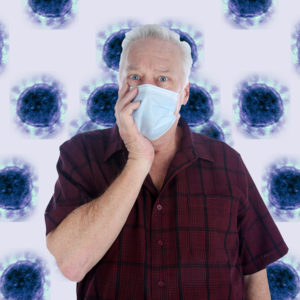For those of us who study healthcare and admire the role that markets play in lifesaving miracles, COVID-19 has thrust us into the worst of times and the best of times.
It’s the worst of times because the virus has sheathed the globe in a slurry of death, suffering, privation, inquietude and isolation.
It’s the best of times because practically everyone of consequence appears suddenly to recognize that: (1) delivery systems (resources and how we use them) matter more than insurance schemes; (2) legal and regulatory constraints paralyze the delivery system during crises; and (3) improving that delivery system depends on private agents who can nimbly and rapidly innovate.
Practically all attention today is on the delivery system, with little discussion of insurance reform pabulum. There’s occasional genuflection to single-payer (“Medicare for All” in current American parlance). But it’s difficult to observe the single-payer systems of China, Iran, Italy, Spain, etc. and find much to admire at present.
We’ll see how well America fares, but as April begins, our “profligacy” means double or triple the intensive care unit beds per population — a cushion that will save countless lives. For an Italian gasping unattended in a hospital hallway, “universal” care is an empty promise.
America has implemented more delivery system innovation in the last 25 days than in my previous 25 years of healthcare research. Desperate times, it seems, call for sensible measures.
States are hurling their timid, protectionist regulations over the railing in a desperate race to keep COVID-19 from overloading providers. Consider how things have changed overnight — at least in some states:
— Hospitals wishing to spend their own money to add ICU beds no longer need to beg governments for permission.
— Doctors licensed in one state who wish to rush to another state — say, New York — to join the fray no longer need to obtain additional licenses when they arrive.
— Patients who wish to consult with doctors in other states via telemedicine can now do so. They can use conventional apps like Skype and FaceTime rather than proprietary health care portals.
— Retired doctors and nurses are being welcomed back into the fray with minimal licensure obstacles.
— Nurse practitioners and other professionals are being allowed to practice up to the limits of their training.
— The Food and Drug Administration is — to some extent — expediting approval processes for ventilators, surgical masks, mask-cleaning devices, drug treatments, etc.
As a casual observation, the blame game — which is mostly harmful — is mostly aimed at politicians and bureaucrats. Some blame President Trump for the slow deployment of COVID-19 tests; others blame the FDA or the Centers for Disease Control and Prevention.
Others point to the Obama administration’s failure to restock N-95 surgical masks after the H1N1 influenza epidemic. Or Florida governor Ron DeSantis for delaying the closure of beaches. Or New York Gov. Andrew Cuomo for choosing not to stockpile ventilators. Or Speaker Nancy Pelosi for early, vocal opposition to the president’s ban on flights from China.
Or the World Health Organization for propagating Chinese propaganda. Or Mayor Bill de Blasio and other New York City officials urging revelers to crowd the streets, theaters and subways. Or panic-stricken state officials who wrote the laws and regulations they’ve jettisoned in recent days.
All these officials have undoubtedly made mistakes. They’re human, and they’re making life-and-death, wealth-and-poverty decisions in near-total darkness every day. But the message seems to have penetrated American society, at least for the moment, that government micromanagement of healthcare is dangerous.
Those seen as heroes include private actors stepping suddenly and nimbly into the fray. After a mighty political effort to get expedited FDA approval, the private non-profit research institute Battelle is producing machines to mass-sterilize surgical masks.
The big automakers, Elon Musk, and Dyson (vacuum cleaners) offered to provide ventilators. MyPillow, Brooks Brothers and others are shifting production overnight to face masks. Unlike governments, these enterprises can turn on a dime. (And the politicians and bureaucrats allowing them to do so deserve praise, even if they’ve been a bit slow at times.)
The looming question is whether the lessons of this great awakening will remain after the crisis passes, or whether we’ll just slide back into old habits.

